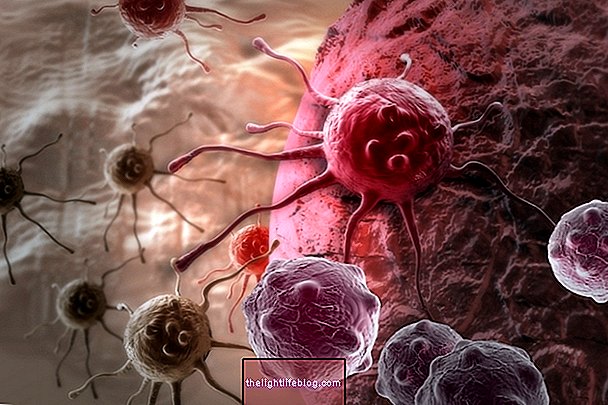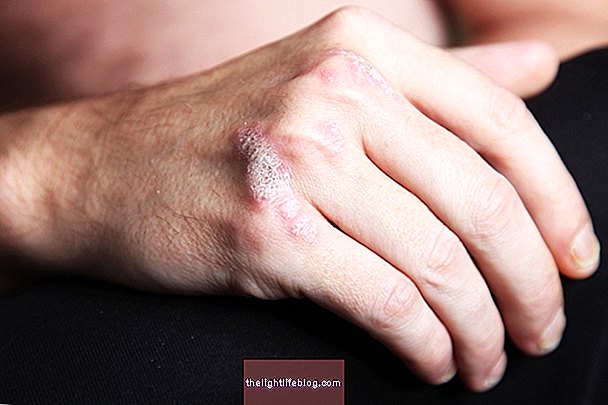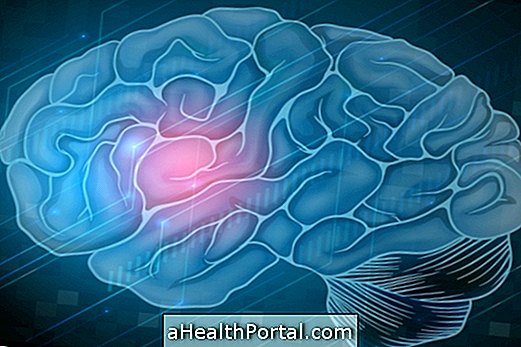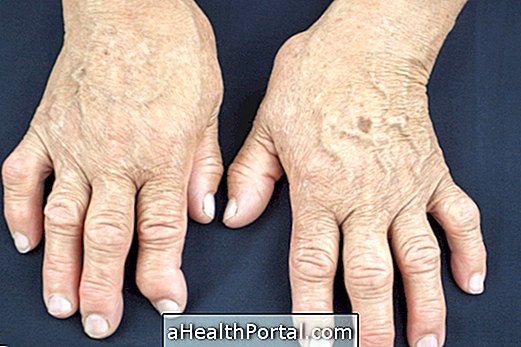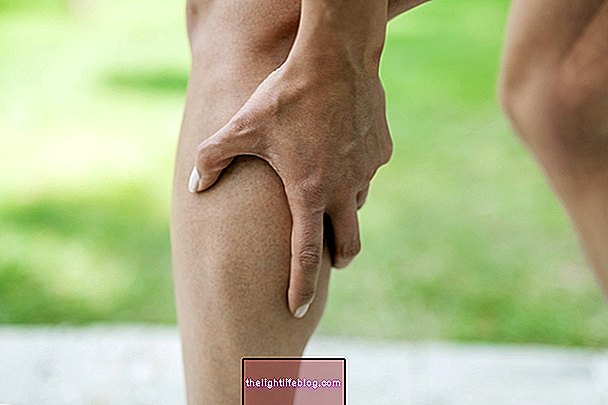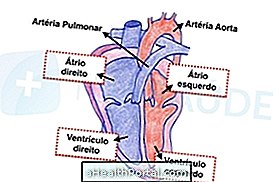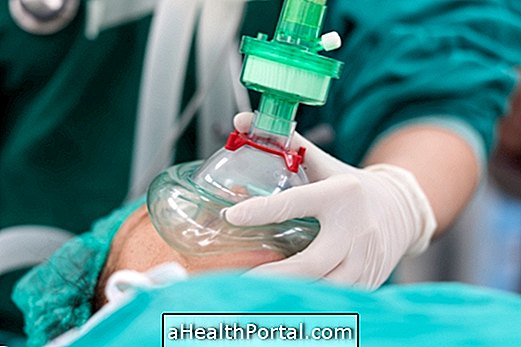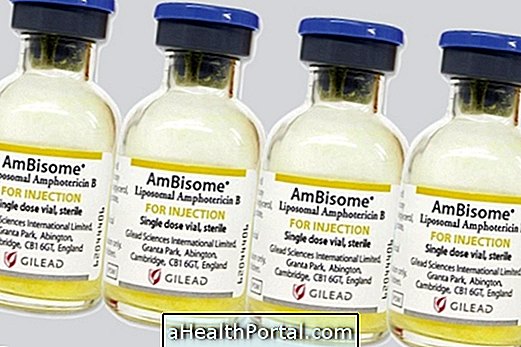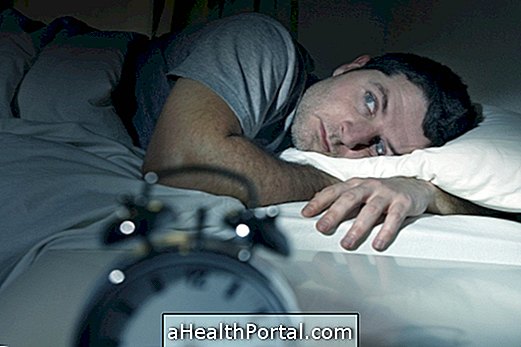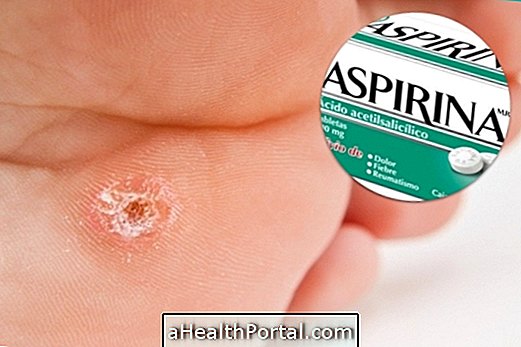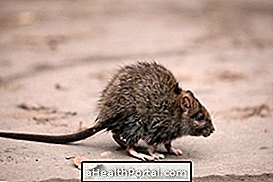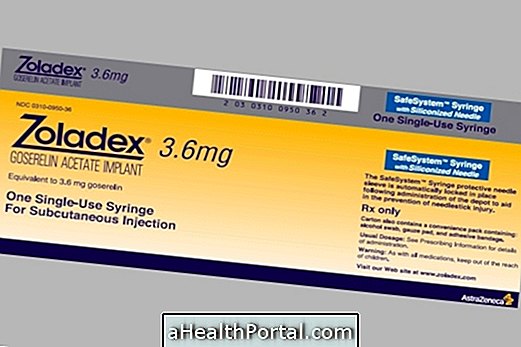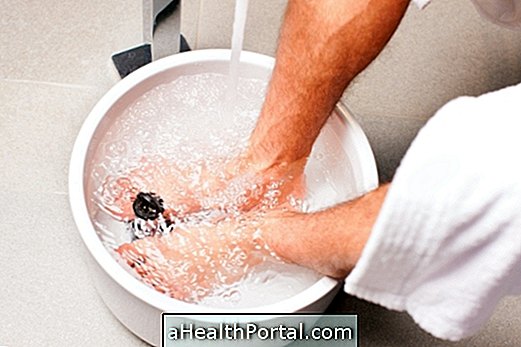Urinary lithiasis, popularly known as kidney stone, is caused by the appearance of stones in the urinary tract that can prevent the passage of urine and cause a lot of pain.
Urinary stones are small crystals that form due to the increased concentration of certain substances like calcium, uric acid, phosphate or oxalate in the urine. They may not cause any symptoms or cause serious complications like renal colic or kidney failure.
Urinary lithiasis occurs more in men than in women, reaching the kidney and urethra. The disease can be caused due to genetic, metabolic problems, low fluid intake, sedentary lifestyle and poor diet.
Symptoms of urinary lithiasis
The symptoms of urinary lithiasis can be:
- Severe pain in the belly, back of the back, groin or even testicles;
- Urine darker than normal,
- Blood in the urine;
- Chills;
- Fever;
- Nausea;
- Vomiting;
In many cases kidney stones remain symptom-free for a long time, with only the first signs being felt when they are released from the kidneys or ureters, causing pain. In the presence of these symptoms and signs, the individual should consult the urologist physician as soon as possible.
Treatment of urinary lithiasis
Treatment of urinary lithiasis usually includes taking analgesics for pain relief, removal of stones through surgery and prevention of the formation of new stones.
For elimination of kidney stones, the patient should drink plenty of water to produce a large amount of urine and facilitate their exit, and some remedies such as allopurinol, antibiotics, diuretics or sodium bicarbonate may also be indicated to aid in the removal of kidney stones.
Some great natural treatments for kidney stones are rock break tea, black mulberry leaves and watermelon juice.
Surgery is indicated when previous treatments were not effective.
Prevention of urinary lithiasis includes increased fluid intake; decreased consumption of meat, milk and dairy products, salt and legumes such as spinach, beans or sweet potatoes.
There are cases in which renal calculi, even after extraction, may re-emerge causing recurrent urinary lithiasis.
Urinary lithiasis in pregnancy
Urinary lithiasis in pregnancy is rare, but it is often associated with urinary tract infection.
During pregnancy there are anatomical and functional changes in the urinary tract that may increase the richness of kidney stones, but there are compensation systems in the body such as increased urinary pH and increased urination that decrease the risk of formation of these stones.
The signs and symptoms are similar to those seen in non-pregnant women and may be low back pain, abdominal pain, nausea, vomiting, painful urination and fever.
Rest, hydration and pain control are the initial treatment because taking medications should be avoided as they can harm the baby.
Urinary lithiasis in childhood
Urinary lithiasis in childhood is often associated with metabolic disturbances, urinary tract anomalies, diet or urinary tract infection, and the signs and symptoms in children are the same as in adults. The treatment of childhood lithiasis consists of increased water intake, changes in diet and use of medications that facilitate the excretion of stones. In more severe cases of urinary obstruction it is necessary to resort to surgery.
Useful links:
- Kidney stone
- Home Remedy for Kidney Stones
- Natural Remedy for Kidney Stone
